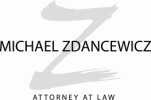 If you are a creditor who has a borrower that discharged the debt owed to you in a bankruptcy filing, what do you do if the borrower wants to voluntarily repay the discharged debt? There is no quick and easy answer to this question, but the best advice is proceed with caution.
If you are a creditor who has a borrower that discharged the debt owed to you in a bankruptcy filing, what do you do if the borrower wants to voluntarily repay the discharged debt? There is no quick and easy answer to this question, but the best advice is proceed with caution.
A borrower may have personal reasons for repaying some of his discharged debts (especially debts owed to family or friends), or he may be trying to maintain a business trade credit relationship. As a creditor with a discharged debt, you are prohibited from taking any steps to collect the debt. Thus, this situation could be fairly risky.
In order to fully protect yourself, a prudent creditor may wish to seek the advice of competent counsel like the attorneys at Windtberg & Zdancewicz, PLC. You must be careful in any discussion or documentation of the discharged debt. It is also wise to keep such debts separate from all post-bankruptcy, non-discharged debt to avoid confusion. The discharged account requires no payment, so any payments received from the debtor are a gift.
If you are interested in learning more about how to handle payments of a discharged debt or anything other creditor’s rights matter, please contact our offices today.
The attorneys at Windtberg & Zdancewicz, PLC, provide clients with experienced legal representation. We handle many types of business disputes on behalf of both creditors and debtors. We are experienced in creditor’s rights including garnishments, charging orders, attachment, property execution, trustee’s sales, foreclosures, judgments, judgment collection, domestication of foreign judgments, and creditor’s issues in bankruptcy cases. If you need assistance, or are interested in learning more, please contact us at (480) 584-5660.
